Commit to G-Day!
UPDATE:
GDay: 3:45p@ludacris
Be there.
Saturday | Sanford Stadium | #93KDay pic.twitter.com/T0DH7md3OA
— Georgia Bulldogs (@UGAAthletics) April 14, 2016
“I just want to tell everybody how great it is to be back home. I love the energy and passion here tonight. We want to see the same energy and passion at the spring game. We want to see 93,000 there to come out and support us.
The easiest thing in recruiting is when your fanbase is united and everybody is pulling in the same direction. That’s what we need, that’s what we want, that’s what we expect. We want to get that done.”
Coach Kirby Smart (BBA ’98)
G-Day Schedule
G-Day is April 16, 2016, at 4:00 p.m.
Admission is free!
1:00 p.m. – Stadium Opens
1:15 p.m. – Flag football game between former football players
2:45 p.m. – Dawg Walk
3:00 p.m. – Team stretch on the field
3:45 p.m. – Ludacris performance
4:00 p.m. – G-Day Spring Football Game
Stadium and Parking
All stadium gates will be open, beginning at 1:00 p.m.
Seating throughout the stadium is general admission, with the following exceptions:
- Sections 135 & 136, Rows 1 – 25
- Sections 209 – 215
- Sections 225 – 226
View more details at georgiadogs.com.
Stadium Info
Parking Info
View from the sidelines
Whether you’re at G-Day, watching from home, or on the road, tune in to the official University of Georgia Snapchat accounts listed below. All three accounts will be posting from the sidelines throughout G-Day!



Around Campus
- MPA 50th Anniversary Celebration G-Day Tailgate
- G-Day Tailgate with CAES Dean Sam Pardue
Alumni Chapter G-Day Watching Parties
- Cincinnati Dawgs Volunteering and Game Watching
- Phoenix Dawgs Game Watching Party
- Chicago Chapter G-Day Game Watching Party
Are you a graduate of the University of Georgia? Please take a moment and update your information to stay up-to-date with all things UGA!


 To celebrate the end of the year, the UGA Alumni Association is featuring a post from
To celebrate the end of the year, the UGA Alumni Association is featuring a post from  Please read the following note from Meredith Gurley Johnson (BSFCS ’00), executive director of the UGA Alumni Association:
Please read the following note from Meredith Gurley Johnson (BSFCS ’00), executive director of the UGA Alumni Association:
